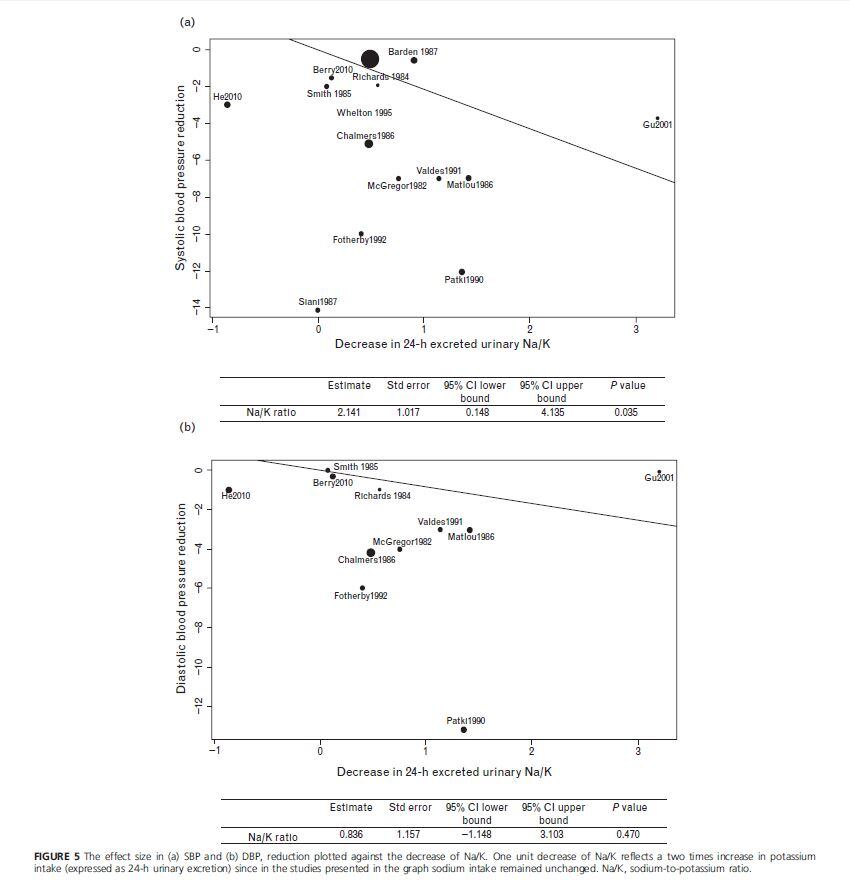The effect was improved if coupled with salt-sodium reduction in patients not taking hypertension drugs in the 15 studies.
The researchers noted the results, published in the Journal of Hypertension, were affected by Body Mass Index (BMI) differences between countries as well as ethnographical differences and called for more research.
But the findings were clear that increasing potassium intakes via foods like fruits, vegetables and nuts or fortified foods or food supplements delivered significant blood pressure (BP) reductions across a variety of population sets.
Most of the 15 studies scrutinised employed “tablets or elixirs” although dietary potassium was also studied with typical interventions sitting at around 60–65 mmol (milimole)/day. The lowest intervention was 40 mmol/day, the highest 120 mmol/day.
“Overall, our study confirms that several factors are correlated with the reduction in BP following increased potassium supplementation, including baseline BP levels, potassium dose and Na/K [sodium’/potassium balance],” the researchers wrote.
They added: “It is almost certain that the BP-lowering effects of potassium supplementation and/or sodium restriction are influenced by other population characteristics, such as BMI and ethnicity.”
Those without elevated BP did not benefit significantly from potassium intervention in the studies selected that were all longer than four weeks in duration, they noted, although some previous studies showed BP benefits at 30mmol/day.

“Importantly, larger trials are necessary to evaluate whether long-term dietary modifications, especially in pre-hypertensive participants, would delay progression to hypertensive stage and contribute to reducing future cardiovascular events.”
They concluded: “This benefit appears to be true across a wide range of baseline potassium intakes. Increasing potassium intake may represent a cost-effective approach to not only delay progression towards high BP and its potential consequences, but also reduce the severity of the condition, possibly deferring the need for antihypertensive drugs.”
The results back the World Health Organisation (WHO) which recommends at least 3.51 grams per day to achieve significant blood pressure reduction in at risk people. WHO estimates about one quarter of the global population of 7bn suffers from hypertension or 1.75bn people.
Potassium is approved to make statements about blood pressure, muscle and nervous system function in the European Union's 28 member states under the 2006 EU nutrition and health claims regulation (NHCR).
Source:
Journal of Hypertension
Published ahead of print
‘Daily potassiumintake and sodium-to-potassiumratio in the reduction of blood pressure: ameta-analysis of randomized controlled trials’
Authors: Aristea Binia, Jonathan Jaeger, Youyou Hu, Anurag Singh, Diane Zimmermann
